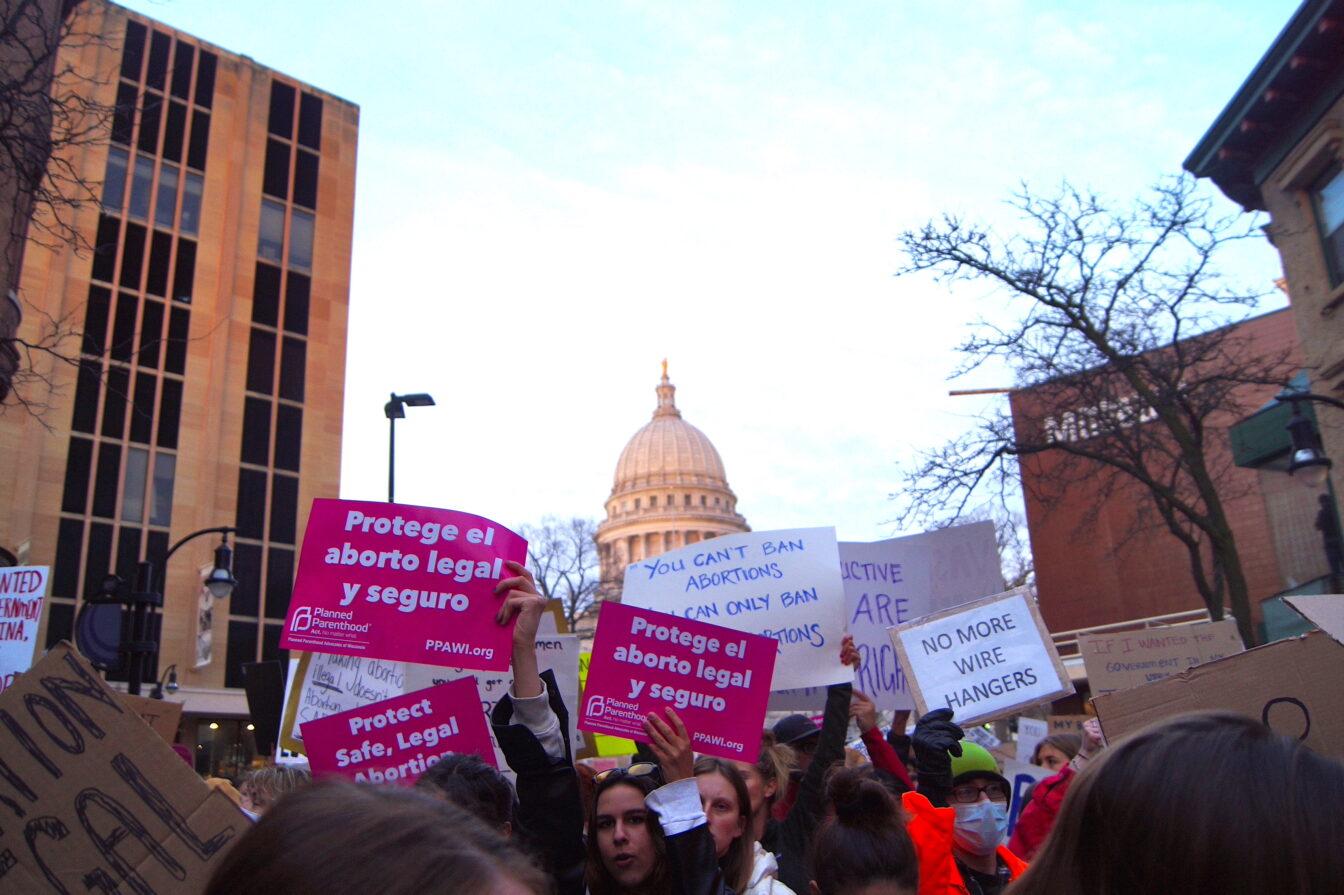The U.S. Supreme Court overturned Roe v. Wade June 24, leaving the legality of abortion in Wisconsin in question. The 1849 criminal code in Wisconsin makes providing an abortion in the state a felony which was unenforceable under Roe v. Wade. Now, it is unclear if the law will be enforceable and will continue to be unclear until a judge opines on the issue.
Supreme Court Justice Samuel Alito wrote the majority opinion, joined by Justices Clarence Thomas, Neil Gorsuch, Brett Kavanaugh and Amy Coney Barrett. Chief Justice John Roberts concurred in judgment yet voted to limit the decision to banning abortions after 15 weeks following the Mississippi law, according to NPR. Of the 6-3 decision, Justices Stephen Breyer, Sonia Sotomayor and Elena Kagan were in the dissent.
“Across party lines, most people in the state think there should be at least some access to abortion which does cross the traditional party divide on the issue,” Professor of Journalism and Mass Communication Michael Wagner said in a interview with The Badger Herald in May. “Only 10 – 15% of Wisconsinites want an outright ban under all circumstances on abortion.”
Wisconsin Gov. Tony Evers and State Attorney General Josh Kaul announced a new lawsuit challenging Wisconsin’s criminal abortion ban June 28.
The lawsuit argues that Wisconsin state statutes contain two sets of criminal laws that directly conflict with one another if both statutes are applied to abortion. The lawsuit also argues that multiple state laws that regulate how a physician can lawfully provide an abortion conflict with the 1849 criminal abortion ban.
The lawsuit was filed in Dane County Circuit Court and asks the court to clarify that the criminal abortion ban was implicitly repealed by abortion-related statutes passed after the 1849 ban and is unenforceable, according to the press release.
A draft opinion of Dobbs v. Jackson Women’s health, the case overturning the 1973 ruling that established the constitutional right to abortion, was leaked in May, leading to student protests at the state Capitol.
“[This is] exactly what we expected,” former president of UW’s chapter of Planned Parenthood Generation Action (PPGA), Maya Cherins said. “It’s essentially the same as the draft opinion.”
Following the Roe v. Wade decision, Wisconsin Planned Parenthood has currently suspended its abortion services.
Under the 1849 law, performing an abortion even in response to the health of the pregnant person, rape or incest could face felony charges, according to the University of Wisconsin Collaborative for Reproductive Equity (CORE).
Wisconsin is one of twenty-two states that have laws banning or severely restricting access to abortion. However, Wisconsin is one of nine states where the laws predate Roe v. Wade.
Neighboring states Illinois and Minnesota are preparing for an influx of patients as abortion will remain legal in these states.
“People who have money and resources will be able to travel to access abortion, but it’s poor women, low-income, Black, Indigenous, People of Color who are going to struggle the most to get abortions,” Cherins said.
For Wisconsin residents, Planned Parenthood of Wisconsin suggests those seeking an abortion should still contact their local Planned Parenthood, which will assist the individual in receiving abortion care in another state.
Prior to the overturn of Roe v. Wade, almost one in five (18%) Wisconsin residents traveled out of state to receive abortion care, according to CORE. Yet barriers regarding lack of funds, child care and transportation exist especially for Wisconsin residents of Color, those living off low income or in rural areas.
In 1992, the Supreme Court upheld the right to an abortion in Casey v. Planned Parenthood, while enabling states to impose some restrictions.
After Casey v. Planned Parenthood, the Wisconsin Legislature imposed restrictions “requiring abortionists to determine if a woman’s consent is freely given, to perform a physical exam before an abortion, to be physically present when an abortion drug is given to a woman and to perform an ultrasound before an abortion.”
Between 2009 and 2017, Wisconsin saw a 40% decline in abortion services in response to additional restrictions passed by the state legislature. These laws added additional barriers including participating in state-directed counseling in the clinic designed to discourage abortion, followed by a 24-hour waiting period.
“Things like referencing handmaid’s tale or coat hangers … this is our reality and we need to be taking it seriously,” Cherins said.
Editor’s Note: This article has been updated to include recent developments about the Wisconsin’s 1849 criminal abortion ban .
















